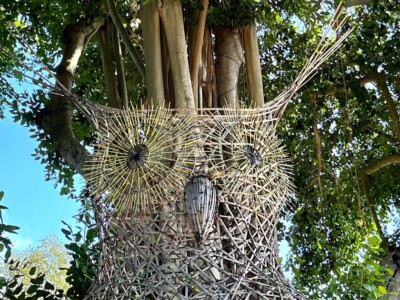As part of a year-long celebration of the 50th anniversary of the occupation of Willard Straight Hall on April 19, 1969, a group of alumni, students, and community members gathered during Homecoming at the Africana Studies and Research Center on North Campus. A handful of those present were among the group of Black and Latino students who occupied the Straight 50 years ago.
A Commemorative Walk: A Cultural Remembrance of the 1969 Occupation of Willard Straight Hall (WSH), was held on October 5, 2019. The walk was led by students and alumni, with stops along the way to highlight places of significance.
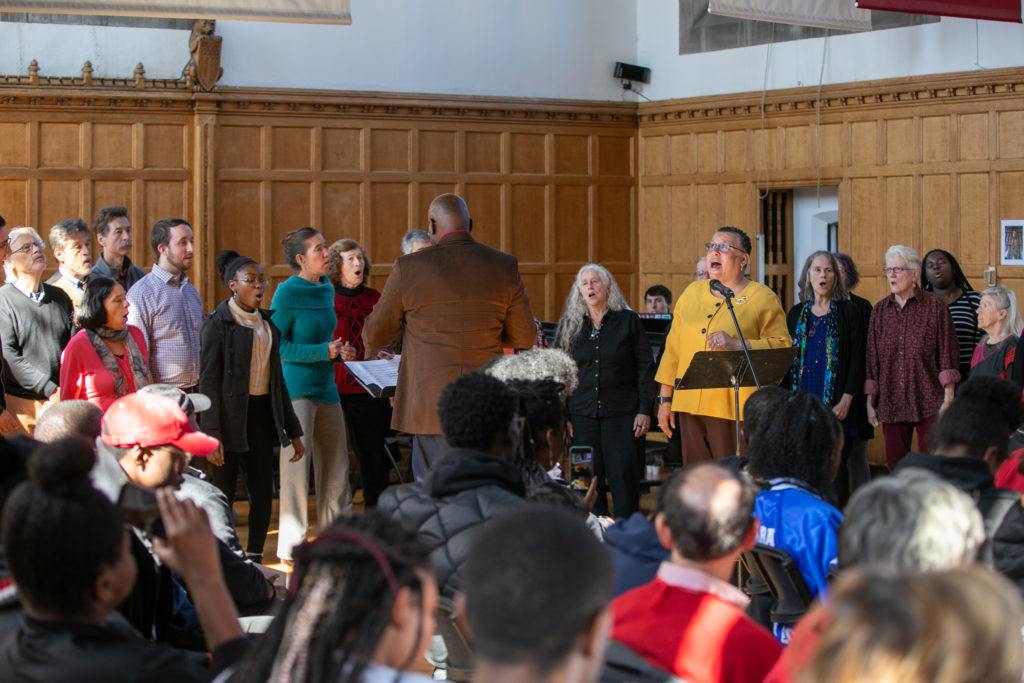
Commemorative walk: making meaning of the WSH occupation
The walk began at the Africana Studies and Research Center, which was established in 1995, and now serves as a home for Africana Studies on campus. “The Center helps develop students’ understanding of Blackness,” said the political action chair of Black Students United at Cornell.
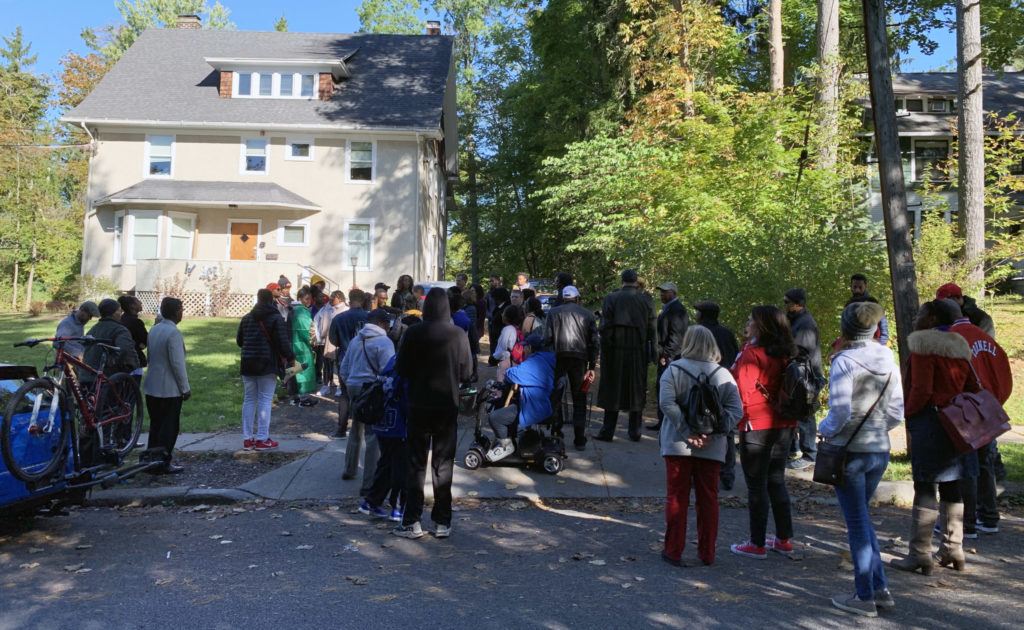
The next stop was Wari Cooperative (Wari House), where Jacqueline Davis-Manigaulte ’72 shared her experience as a member of the second class to live in the house. “This was a place where I learned how to cook, to laugh, and to cry,” she said. “There was lots of meaning making, and it is still home to me.”
Davis-Manigaulte recounted the events of April 18, 1969, when her classmates gathered at Wari House throughout the night. “There was no internet, so we heard about it one-by-one. And one-by-one, through the night, people began arriving,” she said. “Here is where we came, because this was our unofficial gathering place.”
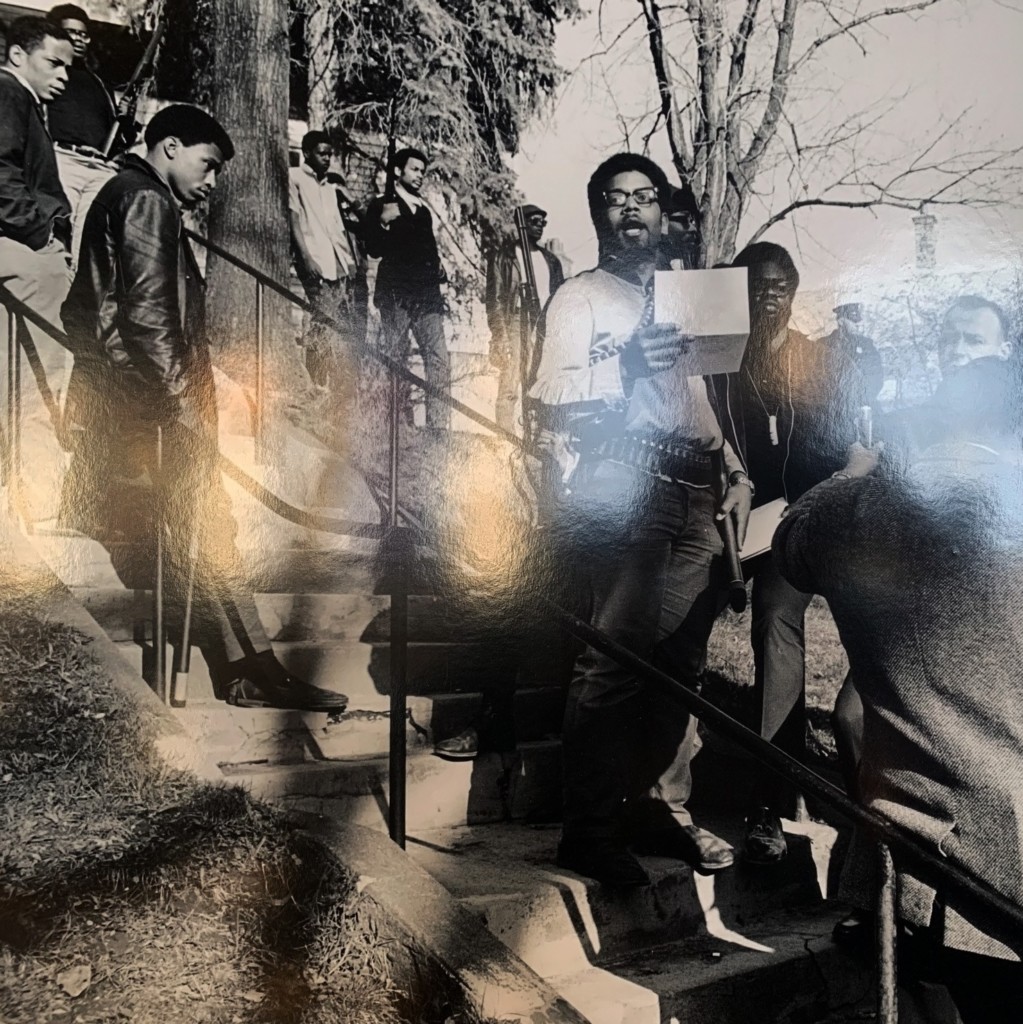
The walkers continued to the former site of the Africana Studies and Research Center, at 320 Wait Avenue. Zachary Carter ’72 stood on the same stairs where he had stood 50 years earlier. “I’m not wearing the same leather jacket,” he joked. “Because of my expression in that iconic 1969 photo, I was nicknamed the Minister of Sad Looks,” Carter said.
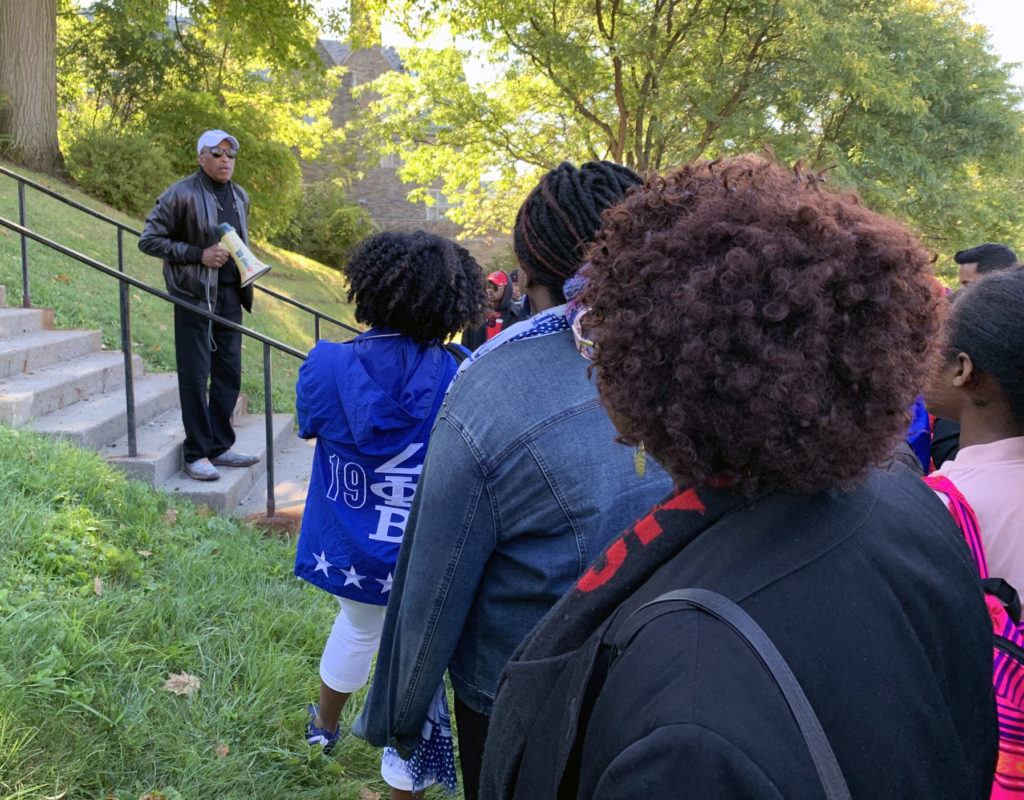
Dedication ceremony: honoring Cornell’s commitment to inclusion
The walk continued to Willard Straight Hall’s Memorial Room, for the formal dedication of a plaque in honor of the occupation and the profound impact it had on the university, as well as on the broader Civil Rights movement.
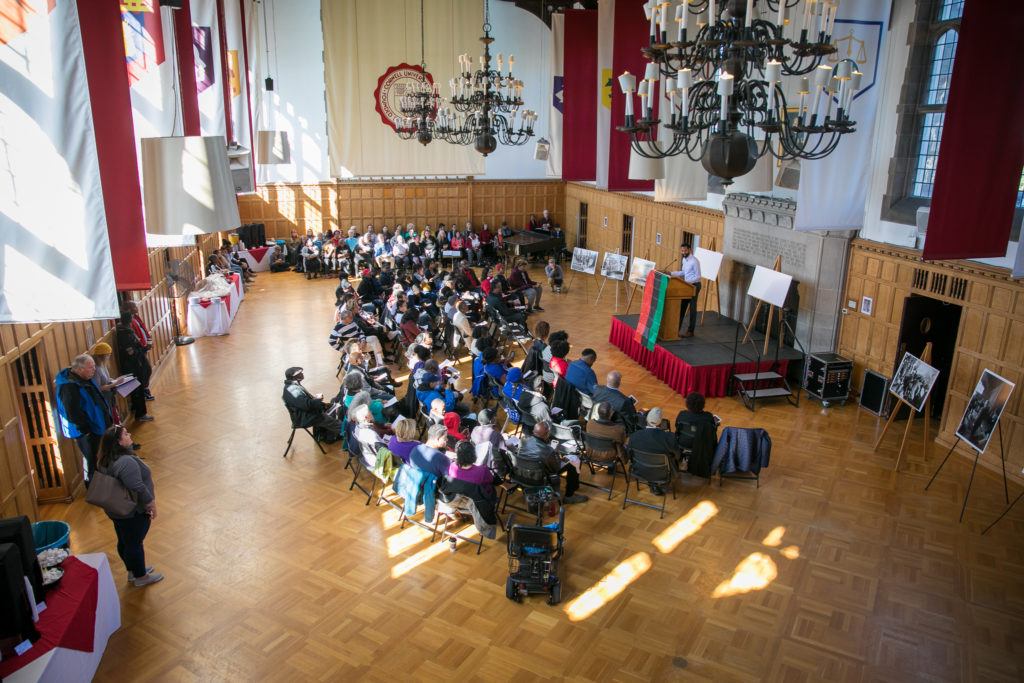
Vijay Pendakur, dean of students at Cornell acknowledged that the occupation has changed the way Cornell works: “from the way we teach, to the way we support students, to the way we view ourselves—as we strive to be a diverse and inclusive university.”
N’Dri Thérèse Assié-Lumumba, professor at the Africana Studies and Research Center, said the plaque serves as a permanent record of the significance of the WSH occupation in the history of Cornell. “We are working to bring to full fruition the vision of founder Ezra Cornell, to found an institution where ‘any person can find instruction in any study,’” she said.
Carter referred again to the iconic photo, on display to the right of the stage. He pointed out that many of the students in the picture are now lawyers, doctors, academics, and judges. Addressing the students in the audience, he reminded them that, one day soon, they too would be professionals.
Carter called the peaceful resolution of the occupation a testament to Cornell, and praised the university’s willingness to mount a celebration and a plaque commemorating the event. “Institutions matter,” he said.


